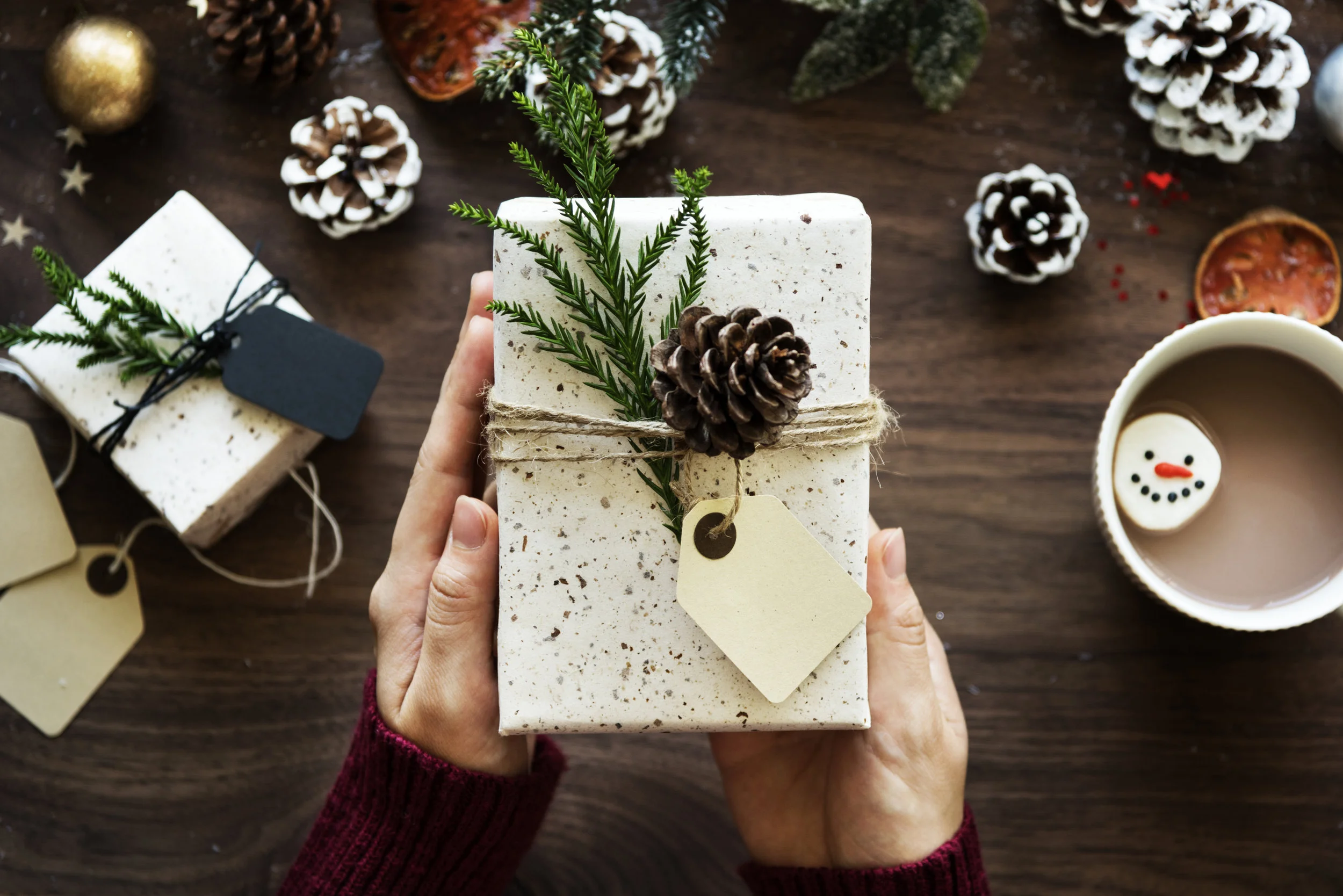Over the past few weeks, I read a couple provocative articles on the subject of holiday gift-giving and consumerism.
The first was from Paul Jarvis, who writes a newsletter I read weekly. In his last newsletter, he shared how he doesn't participate in the holiday tradition of gift-giving. Instead, for him and his wife, Christmas Day is a quiet day of resting.
There was something about his perspective that really appealed to me. At times I know I've gotten caught up in the frenzy of shopping, gift-wrapping, making endless dishes to bring to endless parties, and feeling like I need a holiday to recover from the holidays.
Quiet and peaceful sound so nice.
Especially as I'm in the midst of learning how to do less.
The second article was even more provocative. It was written by a guy named George Monibot five years ago. A friend posted it on Facebook: The Gift of Death.
It starts, "Pathological consumption has become so normalised that we scarcely notice it."
His article is a sharp critique on the explosion of human consumerism and how our holiday traditions seem to fuel this to the extreme. It is undoubtedly an invitation to consider what we gift others and why. It also compels an evaluation of the consequences of our purchases.
Here are a few thoughts and ideas on the subject.
The case for homemade gifts...
Sometimes I have made my Christmas presents myself. Usually, it's when my budget is tight, and when I do make them, I make things that are consumable (i.e. sugar scrub for your skin, or natural moisturizer and lip balm) rather than pretend I have any artistic or craft skills to create objects others would want to keep. I use containers that can be repurposed (i.e. mason jars) or else recycled.
One of the benefits of this is typically less waste. But the biggest one, in my opinion, is the sweetness of pouring love into creating something for people you love. That said, not everyone has the desire, time or inclination to make their own gifts.
The intentionality of the gift...
Why do we give Christmas gifts? Where does the tradition come from?
Perhaps it's a representation of the three wise men, or the lore of an old "saint Nicholas" who would secretly deposit gifts for kids during Christmas... Wherever it comes from, it's clearly a tradition that isn't going anywhere.
But why DO we do it?
My mother LOVES giving gifts. To her (and to many,) they're an intrinsic expression of love. A gift to her is a way of saying, "I love you and I thought you would like this."
But does everyone put thought into their gifts and why they're getting them?
I find that when someone has put some thought and care into choosing (or making) a gift, it shows. You can also tell when someone just grabbed a chotchky from a shelf. They are vastly different experiences in opening and receiving them.
There's a kind of soul you perceive in the gift that was chosen with careful thought and love. The other feels like just an object.
The case for only one gift... and perhaps an experience...
A friend posted on Facebook how her daughters have always gotten only 3 gifts for Christmas: one from mom, one from dad, and one from Santa.
She then shared that in recent years, she's favored gifting them experiences rather than objects (i.e. a special trip to Toronto to see a play.) She shared that she recently discovered her girls remember the experiences with great fondness; there are also plenty of stories that go along with the memories, but they have long forgotten about most of the material gifts they've received.
The case for "German giving"...
My in-law family loves sharing a list of things they need or want. This is handy because it makes it easy to find something they'll actually really welcome. This is not to say that we don't also sometimes go off-list and give each other some really wonderful, unexpected gifts.
Along these lines, another friend also wrote on Facebook that she and her husband practice "German giving." (Her term.)
According to her, German giving means: something they want, something they need, something to wear and something to read.
I LOVE this!
An invitation...
So whether it's hand-made gifts, a thoughtful gift, the gift of an experience, or one of the German gifts, I'd love to invite you to consider making heartfelt conscious choices in your gift-giving.
Our choices and our purchases do impact our environment. It behooves us to be increasingly mindful of how we live every day, including the gifts we give... whether it's for Christmas, Hanukkah, birthdays, or mother's day.
Merry Christmas! Happy Hanukkah! And a joyful season surrounded by people you love.

